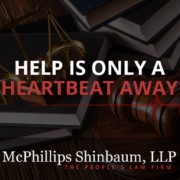Make Every Month Safety Month
An ounce of prevention is worth a pound of cure. Although a simple statement, the thought applies well to accident prevention and legal remedies. Putting a focus on safety saves lives and lawsuits.
Sponsored by the National Safety Council, June was National Safety Month. The theme for 2013 was Safety Starts With Me. The goal was to urge individuals to take their own safety, and the safety of co-workers, family and friends into account throughout daily life. Each week offered a safety theme like understanding slip and fall accidents, emergency preparedness, ergonomics and employee wellness.
Our firm works hard to obtain compensation for clients injured in many ways. Consider these points about accidents in the United States:
- Fires are the third leading cause of deadly home injury in the country. The youngest and oldest family members are the most vulnerable. In 2010, a person was injured in a fire about every 30 minutes and a person died in a fire approximately every 169 minutes. Fire prevention, including installation and proper operation of smoke alarms, does not make headlines until tragedy occurs.
- From pills to pesticides, unintentional poisoning kills over 80 people per day. Poison can be eaten, inhaled, or absorbed through the skin.
- About 200,000 children are treated in emergency rooms for a fall-related injury each year.
- According to the Centers for Disease Control and Prevention (CDC), about 800,000 people are treated for dog bites every year. Understanding leash laws and responsible pet ownership is essential for keeping your children and your dog safe.
Preventing painful accidents is better than putting life back together after the injury, disability or the death of a loved one. Every month should be National Safety Month. If you are injured through the negligence of someone else, talk to an experienced personal injury attorney in Alabama.









